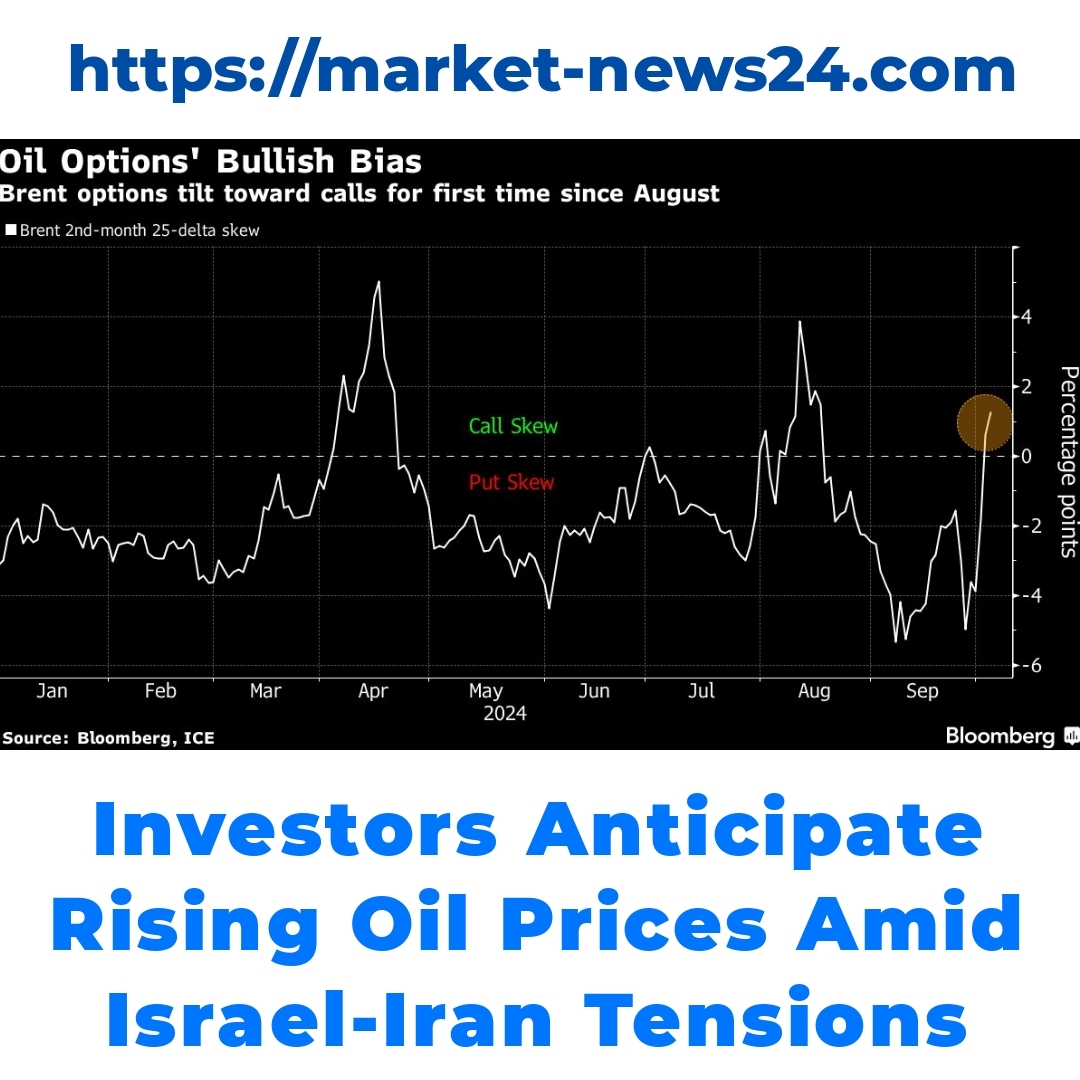The current rise in oil prices is strongly tied to geopolitical events, particularly the escalating tensions between Israel and Iran. As hostilities intensify, experts are closely monitoring how these developments will influence global oil markets and investor behavior, making it a critical time for those involved in energy investments to stay informed.


Oil prices have always played a pivotal role in the global economy, affecting everything from consumer goods to transportation costs. Currently, as tensions rise between Israel and Iran, these prices are under a microscope. Investors are keenly aware that geopolitical issues can swiftly alter market dynamics, making it essential to understand what’s happening in the oil market today.
Understanding Oil Prices
So, what exactly are oil prices? In simple terms, oil prices reflect the cost of crude oil per barrel as determined on the global market. This figure is important because it influences the price of gasoline, heating oil, and even the costs of items you purchase every day. Currently, crude oil prices are trending upward, driven by various factors, including supply cuts and, notably, geopolitical conflicts like the rising tensions in the Middle East.
The Impact of Middle East Conflict on Oil Prices
When conflict arises in the Middle East, it can have immediate repercussions on oil supply and demand. The ongoing hostilities between Israel and Iran are a prime example. Such conflicts can disrupt oil production and transportation routes, creating instability in the oil market. Thus, investors watch these situations closely, knowing that even a minor escalation can lead to significant fluctuations in oil prices.
Geopolitical Risks and Investor Sentiment
Let’s talk about how investors are feeling right now. Amid rising geopolitical risks, there’s a palpable sense of uncertainty in the oil market. Many investors are betting on rising oil prices as they anticipate that the situation between Israel and Iran may escalate further. Analysts are forecasting that if the conflict continues, we could see even higher oil prices ahead, prompting more investment in this crucial sector.
The Role of Energy Infrastructure in the Oil Market
Energy infrastructure plays a fundamental role in maintaining stable oil prices. Pipelines, refineries, and shipping routes are all vital components of the oil supply chain. However, the risk of these infrastructures being threatened during conflicts cannot be overlooked. Recent reports suggest potential risks to energy infrastructure in the region, heightening concerns about future oil supplies and further pushing prices upwards.
Investment Trends in Oil Amid Tensions
Investment patterns in oil are shifting as geopolitical developments unfold. Many investors are now leaning towards crude oil and energy-related assets, realizing that the ongoing Middle East conflict could distort supply chains. This shift towards energy investments is not surprising; after all, when tensions rise, oil prices often follow suit, prompting a rush for safety in energy assets.
Future Projections: Oil Prices and Energy Investments
As we look ahead, oil market forecasts are strongly tied to geopolitical risks. With the ongoing Israel-Iran tensions, many analysts suggest that we will continue to see fluctuations in oil prices. For those considering long-term investments, it’s crucial to acknowledge these geopolitical contexts. Keeping an eye on these developments could be vital for making informed investment decisions in the energy sector.
Conclusion
In summary, the relationship between Israel-Iran tensions, energy infrastructure, and oil prices is intricate and ever-evolving. The ongoing hostilities are impacting global oil prices, leading to investor speculation about future price increases. If you’re looking to invest, understanding the implications of the Israel-Iran conflict could guide you in navigating the turbulent waters of the oil market.
For anyone interested, now’s a good time to pay attention to how geopolitical events influence your investment strategies, especially regarding oil prices and the overall energy market.
Feel free to drop your thoughts on the impact of the Israel-Iran hostilities on oil prices in the comments below! And don’t forget to subscribe for more insights on energy investments and market forecasts.
FAQ Section
What are oil prices and why are they important?
Oil prices represent the cost of crude oil per barrel on the global market. They are crucial because they influence the price of gasoline, heating oil, and many consumer goods that rely on oil for production and transportation.
How do geopolitical conflicts affect oil prices?
Geopolitical conflicts, especially in oil-rich regions like the Middle East, can disrupt production and transportation routes, leading to instability in the oil market. For instance, tensions between Israel and Iran can cause significant fluctuations in oil prices due to potential disruptions in supply.
What is the current investor sentiment regarding oil prices?
Many investors are feeling uncertain but are also betting on rising oil prices due to the increasing risks associated with the Israel-Iran conflict. This anticipation could lead to more investments in energy-related assets as prices are expected to escalate.
How does energy infrastructure impact oil prices?
Energy infrastructure, such as pipelines and refineries, is vital for maintaining stable oil prices. If these infrastructures are threatened during conflicts, it heightens concerns about supply disruptions, which can push prices higher.
What are the current investment trends in the oil sector?
Investment trends are shifting towards crude oil and energy-related assets as the ongoing Middle East conflict raises awareness about potential supply chain disruptions. Investors typically seek safety in energy investments during times of geopolitical tension.
What are the future projections for oil prices amid these tensions?
Future projections for oil prices are closely tied to geopolitical risks. Analysts suggest that fluctuations will likely continue due to ongoing tensions between Israel and Iran, making it essential for investors to stay informed about these developments.
How can I make informed investment decisions in the oil market?
To make informed investment decisions, it’s important to monitor geopolitical events, understand their implications for oil supply and prices, and consider how these factors can influence the energy sector overall.





